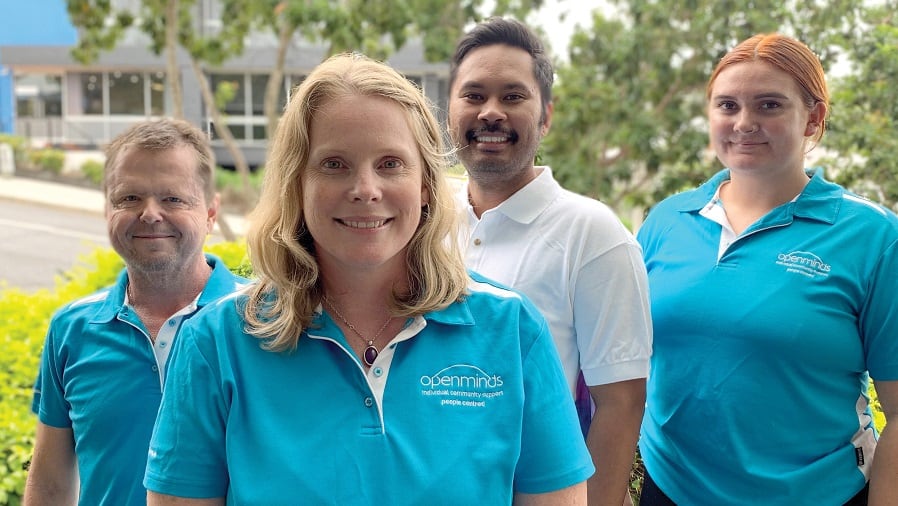10 Key components of
Positive Behaviour Support
Learn the 10 key components of positive behaviour support – a framework we use to improve a person’s quality of life when they have challenging behaviour.

All behaviour occurs for a reason, including challenging behaviour.
People who experience challenging behaviour usually have Improved Relationships outlined in their NDIS (National Disability Insurance Scheme) plans.
When a person exhibits challenging behaviour, this may be unsafe for themselves or others around them.
Historically, restrictive practices have been used to control these challenging behaviours. However, there are other ways to manage these behaviours without breaching their human rights.
Positive behaviour support is a practice to understand the reason behind the behaviour, and introduce strategies to manage or prevent the behaviour from occurring.
At Open Minds we are fortunate to have a team of highly experienced positive behaviour support practitioners who have a proven track record of improving the lives of clients and reducing or eliminating restrictive practices.
This approach results in an improved quality of life for the individual, whilst giving them freedom and independence.
Here are the 10 key components of positive behaviour support that our team puts into practice every day:
- Improve the quality of life of the person – everything we do is done with this in mind
- Develop and improve the person’s life skills, with no punishment
- We work in partnership with the person and the people in their life
- We believe that all behaviour is for a reason, and challenging behaviour is no different
- We follow applied behaviour analysis
- We incorporate other complementary evidence based approached, such as occupational therapy
- Our decisions are based on facts and research, not opinions
- We conduct a formal assessment to create a clear and structured plan of action
- We develop plans to guide the support staff and others involved in the person’s life what to do to prevent the challenging behaviour and manage it reactively if it does occur
- Make sure people are supported over the long term to maintain quality of life
Most importantly, we know to change someone’s life, takes more than just one person. We pride ourselves on togetherness, and including a person’s stakeholders such as therapists and doctors to ensure there is a holistic approach to the plans being made.
Sarah Lysaught, Lead Behaviour Support Specialist at Open Minds, said: “I believe that all behaviour, including challenging behaviour, stems from a reason. It’s important to observe and listen to the person exhibiting the behaviour to really understand what’s going on. Once we understand the reasons behind the behaviours, we work together to implement strategies to overcome barriers.”
Find out more about our positive behaviour support service, meet the team, or send us a referral today.
Source: Definition and scope for positive behavioural support, 2013. Nick J Gore, Peter McGill, Sandy Toogood, David Allen, J Carl Hughes, Peter Baker, Richard P Hastings, Stephen J Noone and Louise D Denne
